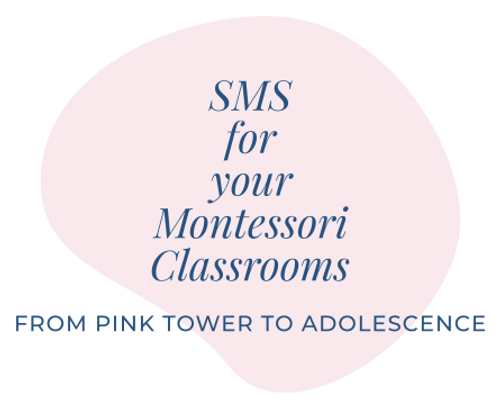Supporting Teaching Teams: Building Strong Communities Through Professional Development
- Anne Slamkowski
- Aug 26, 2025
- 3 min read

In Montessori education, we know the classroom is not just a space for students - it’s a community. The same is true for teachers. A strong, collaborative teaching team doesn’t just make school operations smoother; it transforms the learning environment for adolescents. Yet, like all communities, teaching teams need intentional support, structures for growth, and sometimes, help navigating difficult conversations.
Through my professional development work with schools, I partner with teaching teams to strengthen communication, align around Montessori principles, and develop the confidence to address challenges constructively.
Why Supporting Teaching Teams Matters
Dr. Maria Montessori wrote, “The greatest sign of success for a teacher… is to be able to say, ‘The children are now working as if I did not exist.’” That same principle applies to adults. When teaching teams function independently and collaboratively, the school leader doesn’t need to micromanage—they can trust the team to guide students effectively.
Strong teaching teams:
Build consistency for students by aligning expectations.
Model respectful collaboration, which adolescents notice and mirror.
Reduce burnout by sharing responsibilities equitably.
Create space for innovation, knowing that challenges can be discussed openly.
Strategies for Supporting Teaching Teams
1. Regular Structures for Communication
Weekly or bi-weekly team check-ins create predictability. These aren’t just for logistics—they are spaces for reflection, sharing observations, and anticipating student needs.
2. Norms of Collaboration
Teams benefit from clear, co-created agreements. For example: “We assume positive intent,” “We bring problems to the team before escalating,” or “We commit to transparency with families.” These norms ground conversations when tensions rise.
3. Professional Development That Builds Trust
Workshops that go beyond theory and into practice, such as role-playing difficult parent conversations, observing classrooms together, or reflecting on equity, provide teams with shared experiences that strengthen their bonds.
Navigating Difficult Conversations
Even the strongest teams encounter conflict. Left unaddressed, small tensions can fracture trust. Montessori guides know the power of respectful dialogue, and the same applies to adults. In my work, I coach teaching teams on:
Framing the Conversation: Beginning with curiosity (“Help me understand…”) rather than accusation.
Separating Person from Problem: Focusing on the behavior or decision, not the individual.
Using Observation Language: Just as we describe student behavior without judgment, we can factually describe colleague dynamics.
Agreeing on Action Steps: Conversations should end with clear agreements: what will change, how, and by when.
By modeling reflective listening and mutual respect, teaching teams practice the same values we expect from our students.
The Role of Leadership
School leaders play a crucial role in creating environments where teaching teams feel safe to grow. Leaders can:
Provide time and space for collaboration, not just expecting it to happen in the margins.
Invest in ongoing professional development, tailored to team dynamics.
Celebrate progress and acknowledge challenges openly, building a culture of honesty and trust.
A Montessori Approach to Adult Learning
Just as we honor the adolescent need for independence and social connection, professional development for teachers must respect adults as whole people. This means offering autonomy, modeling collaboration, and holding space for reflection. When teaching teams feel empowered, they bring that same empowerment to their students.
As Montessorians, our task is always to prepare the environment, whether for students or for adults. Supporting teaching teams is one of the most important ways we prepare the ground for authentic, thriving Montessori practice.
I am offering full day PD sessions on team dynamics and building. The structure is below. Feel free to contact me for more information!
Prepared to Lead: Building Strong Montessori Teaching Teams.
Program Overview
In Montessori, we know the prepared environment shapes the learner. The same is true for adults. Strong, collaborative teaching teams create thriving classrooms where adolescents feel respected, supported, and empowered.
This professional development program equips Montessori educators with the tools to build trust, navigate conflict, and lead with purpose—no matter their role.
Program Modules
1. The Prepared Environment for Adults
Create the structures and conditions that allow teaching teams to thrive.
2. Building Collaborative Norms
Establish shared agreements to strengthen communication and consistency.
3. Navigating Difficult Conversations with Grace
Develop strategies for addressing conflict in a respectful and productive manner.
4. Teacher Leadership Without Titles
Empower every educator to step into leadership and shape school culture.
Capstone: Restorative Practices for Teams
Learn frameworks for repairing relationships and sustaining trust over time.
Format Options (online and in-person offerings)
One-Day Intensive: Interactive overview of all modules
Two-Day Retreat: In-depth exploration with role-play and reflection
Multi-Session Series: Delivered across a semester with coaching and follow-up
Outcomes for Teams
✔️ Increased trust and collaboration
✔️ Clear, shared expectations for communication
✔️ Confidence in navigating difficult conversations
✔️ Empowerment of teachers as leaders in their communities
✔️ Practical tools for sustaining strong teams beyond the workshop
✨ Prepared to Lead ensures teaching teams model the same respect, independence, and collaboration we expect from our students.




Comments